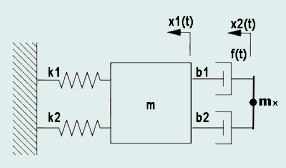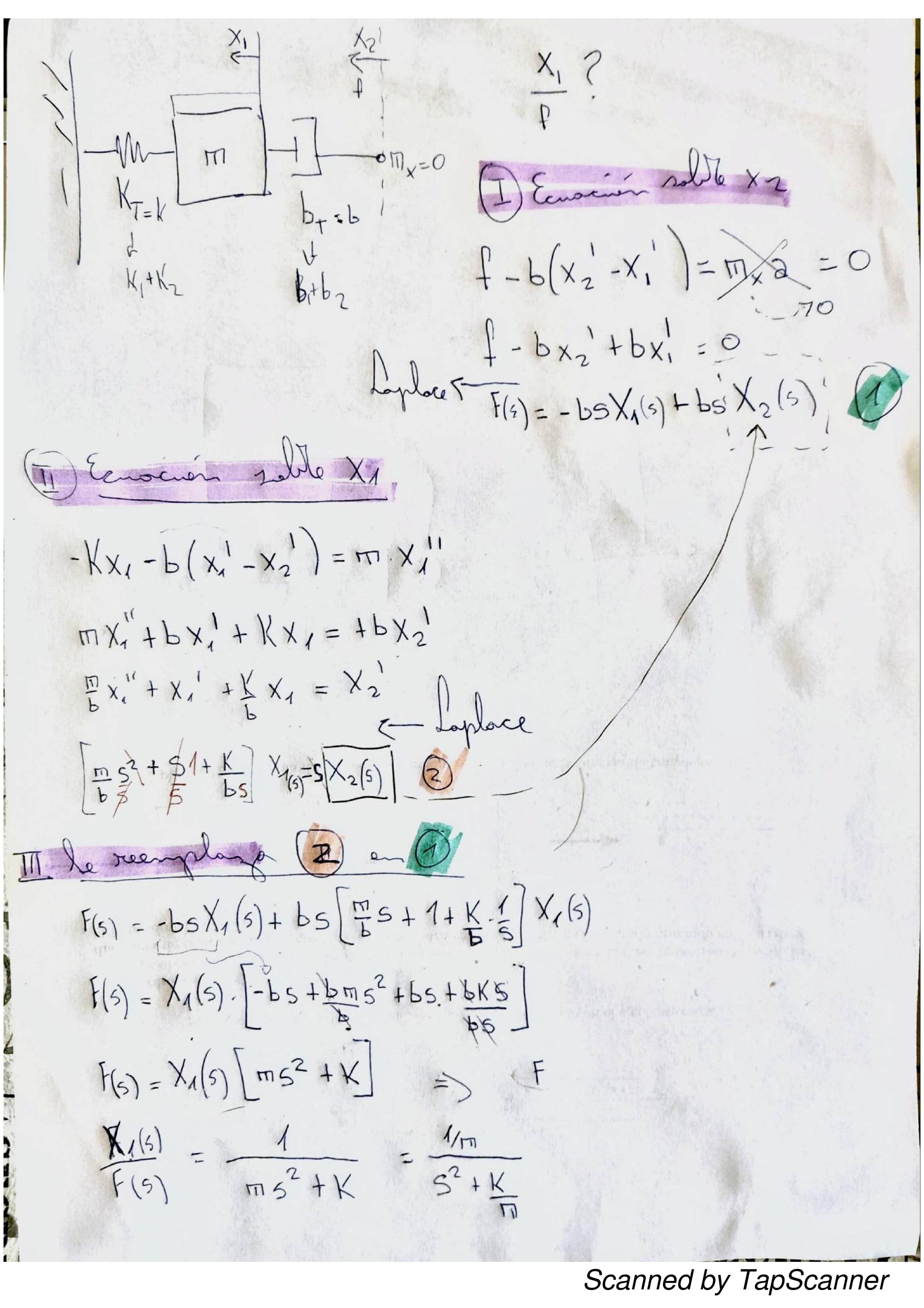If I have the system that could be observed in the next Image:
I want to know the transfer function, where the external force $f$ is the entry and $x_1$ is the output. The direction and positive sense of movement and force is right to left, as the image shows.
Assume that the mass $m_x$ is zero, the initial conditions are zero, and the effects of gravity are null.
Moreover, the two springs are taken as a single equivalent ($k=k_1+k_2$) and the same with the shock absorbers ($b=b_1+b_2$), since it is assumed that each end of them suffers the same displacement, speed and acceleration.
My transfer function is:
$$\frac{X_1(s)}{F(s)}=\frac{\frac{1}{m}}{s^2+\frac{k}{m}}$$
It contains a null damping factor, that is, it is pure oscillatory. However, I know that I have a mass that acquires kinetic energy, a spring that acquires potential energy, and there will be an exchange of energy between them during the oscillations, but I also have a damper dissipating energy, which I don't see in my transfer function. How can I interpret this?
Attached is my development.


